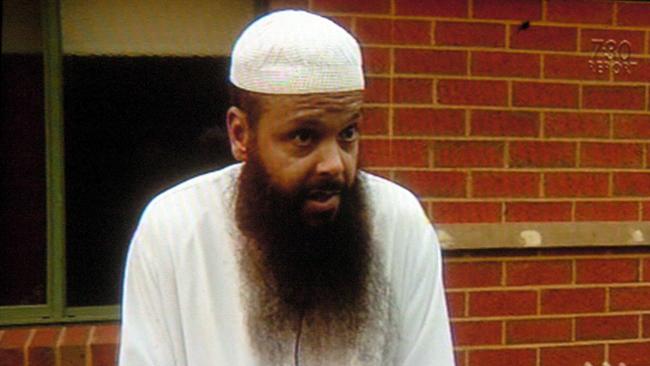Convicted terrorist Abdul Nacer Benbrika loses bid for freedom
The man will stay behind bars despite his sentence finishing after he was deemed an ‘unacceptable risk’ to the community.

In the first use of Commonwealth terrorism legislation, a court has ordered Abdul Nacer Benbrika stay behind bars for another three years after having completed his 15-year sentence.
Victorian Supreme Court justice Andrew Tinney ruled Benbrika posed an “unacceptable risk” of committing a terrorism offence if released and less restrictive measures like releasing him on a control order, keeping him under surveillance or deporting him back to Algeria were not as effective in preventing the risk.
Benbrika was sentenced in 2009 as the spiritual leader of two terror groups in Melbourne and Sydney and in his judgment Justice Tinney said Benbrika still possessed the same extremist views that he passed on to his followers, despite having access to deradicalisation programs in prison.
“Fifteen years after his arrest for terrorism offending the defendant exhibits no real signs of regret or remorse for his actions,” Justice Tinney said
“He has developed an even more over-inflated sense of his worth and importance as a religious leader.
“He continues to feel an obligation to impart his knowledge and beliefs upon others and harbours the strong desire and a clear willingness to do precisely that.”
Justice Tinney said while in prison Benbrika had received a steady stream of visitors, including Australia’s most senior al-Qa’ida member sheik Abu Sulayman al-Muhajir.
He said Benbrika still held an important place in the hearts and minds of a sector of his community – “a matter of which he is acutely aware and from which the narcissistic aspects of his personality obtain succour.”
“The defendant has a proven track history of using his position of moral and religious authority or leadership in the community to form a dangerous organisation which had at its core a belief in the validity and desirability of wreaking violence in support of an extreme view of religion no matter what the consequences,” he said.
“There is nothing to indicate that the personality features or extreme views which led to this occurring have changed or diminished, indeed there may be further risk factors which have arisen or been magnified by the passage of time and the experiences of the defendant during that long period.”
Justice Tinney said Benbrika had arrived in Australia as an adult and had embraced his religion and pursued his study of it “zealously and single-mindedly”.
“His crimes were not the products of some mindlessness or lack of judgment,” Justice Tinney said.
“His was well-organised and executed conduct driven by very powerful feelings and beliefs which had him perfectly willing to perpetrate extreme and outrageous crimes in the name of his faith.”
Justice Tinney said claims by Benbrika to have realised the error in his thinking and resolved to put away his desire to pursue violence in the name of Allah, had a “whiff of implausibility”, coming after the first refusal of parole.
“It strikes me as highly unlikely that a person such as the defendant with his narcissistic personality traits and well-developed sense of religious and intellectual superiority and infallibility would have been moved either instantaneously or over time to embrace the views of another which were so contrary to his own views which had so occupied his mind for many years,” Justice Tinney said.
He said Benbrika still harboured extremist views, had a strong belief in his infallibility and a willingness to impart his beliefs on others.
“On my own analysis I’m satisfied that the claimed change of heart by the defendant is a fabrication by him,” Justice Tinney said.


